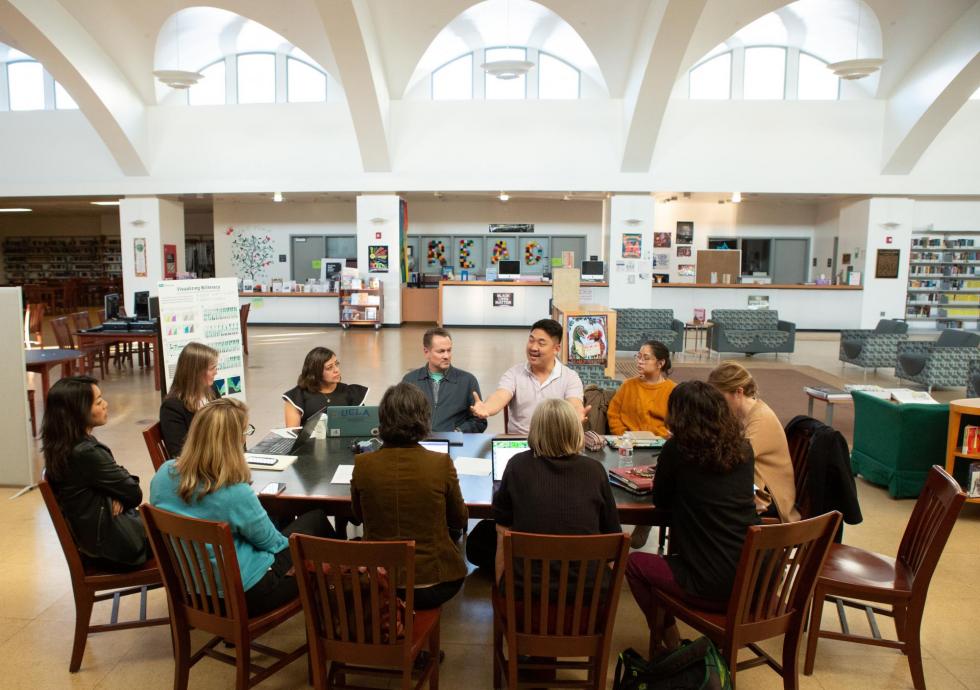SREB, Kentucky will use new federal grant to support career and technical education leaders
The Southern Regional Education Board and the Kentucky Department of Education will use a $2 million, four-year federal research grant to support leaders of career and technical education centers for high school students across the Bluegrass State.
Under the U.S. Department of Education’s Institute of Education Sciences grant, SREB will work with Kentucky education leaders to create and evaluate the SREB Career and Technical Education Leadership Academy for center directors in Kentucky.
Magnolia Consulting, a research organization based in Virginia, will be the co-principal investigator and external evaluator of the study.
The project will develop a model professional learning program, then run a study with a randomized controlled trial to determine how well the model works. The results will help shape future programs for CTE center leaders.
“Leaders of career and technical education centers deserve good preparation and support so they can help more students succeed,” said Dale Winkler, SREB’s vice president of school improvement and a former CTE center director. “SREB and Kentucky are committed to improving career and technical education, now and in the future.”
Building and Testing a Leadership Model
In early 2022, SREB and the state education department will survey and hold discussions with leaders at Kentucky’s shared-time CTE centers to understand the professional development and additional knowledge they need in the position.
Topics that center directors will explore in the program might include labor market data analysis, career pathway development, coaching new and experienced teachers, project-based learning, developing industry partnerships for work-based learning, and integrating career and technical education with academic courses.
The SREB Career and Technical Education Leadership Academy will include a five-day summer institute for center directors, plus four days of additional workshops, onsite leadership coaching between workshops, virtual learning sessions among participants, and job-embedded activities that participants complete in their centers between workshops.
The Kentucky model’s success will be measured by how directors and teachers change their practices, the number of course credits students earn, and whether students complete or plan to continue career pathway courses of study, Winkler said.
The Kentucky Department of Education is recruiting 10 center directors to participate in the pilot year. Lessons learned will guide SREB in developing the full leadership academy curriculum that will be offered for 40 to 50 directors in the third and fourth years of the grant.
The long-term project builds on SREB’s 30-plus years of leadership in improving career and technical education, supporting school leaders, and helping prepare teachers for success — including SREB’s Teaching to Lead model for new career and technical education teachers and SREB SMART (Science and Math Alternative Route to Teaching) for teachers coming to the classroom from other careers.
Schools for Specialized Technical Study
Kentucky is home to more than 100 shared-time CTE centers — schools where students study career pathways for a portion of their day or week while also attending their regular high schools.
Center directors play a critical role in the education of their students. These professionals often are former high school administrators who need more knowledge about building local industry partnerships or working with instructors who have experience in health care, construction, advanced manufacturing and other industries but may not have traditional preparation for teaching.
Other CTE center directors previously were instructors in those schools and may need training in school leadership roles such as working with educators on improving classroom teaching.
CTE center directors also may be required to work with multiple school systems and employers, build new career pathways for students headed for the workplace or college, and serve students with disabilities or other special needs.
Media contact: Alan Richard, cell (202) 641-1300



